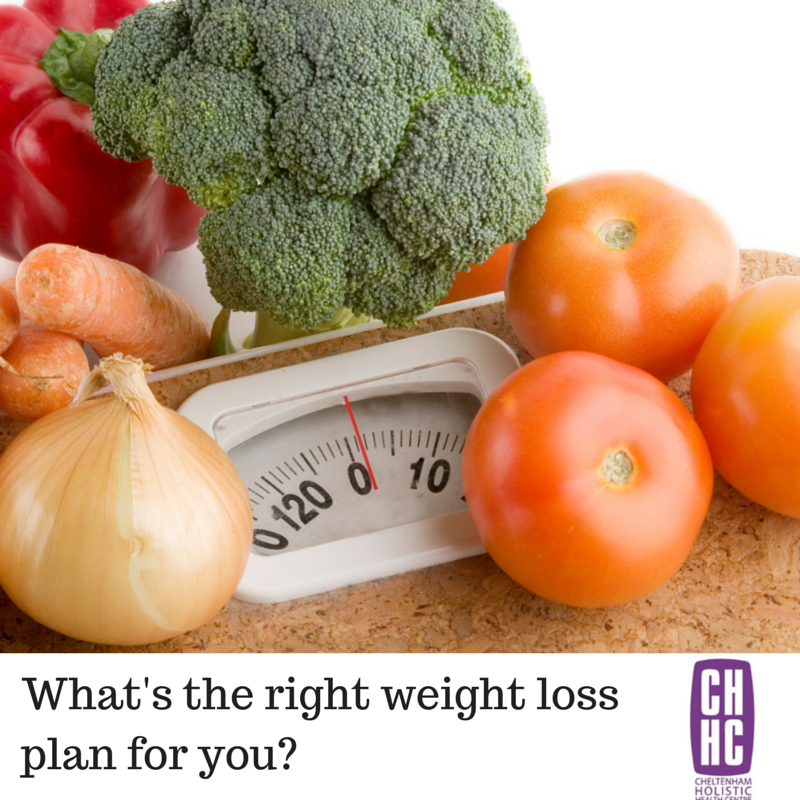TV guidance good but we can do better!
The clinic’s nutrition team Sally and Marianne have welcomed the recent BBC Horizon series on tailored dieting plans, but are keen to stress that we already take the idea of personalised plans much further in helping the clinic’s clients to lose weight.
Sally comments: “This series is one of the best we have seen on some of the real issues involved in weight problems. However, at CHHC we already use the main diet plans recommended in the programme such as high protein/low GI plans, intermittent fasting and support plans, and have been offering a tailored approach for years with our individualised plans for clients! The benefit of seeing a personal nutritionist is that we help you to identify all the obstacles to weight loss.”
With rates of overweight and obesity soaring, 11 million people in the UK on a diet at any one time and 80% failing, it is certainly a high priority to find weight loss solutions that really work. The most important first step is to call a halt to yo-yo dieting and faddy diets, and decide to find the way of eating that suits you, sustains your energy and keeps you healthy for life. If you do that, very often the weight will stabilise of its own accord.
The key is to understand that there are a number of metabolic obstacles to weight loss. For example, I often see clients who go to the gym 3 or 4 times weekly, keep to a low fat, small portions diet and eat very little junk or processed food – and yet are still struggling to lose weight.
What we often find is that people are either eating the wrong kind of diet for their bodytype or lifestyle or there is a block which has to be removed before the weight starts to come off. It might be a food intolerance, a sluggish metabolism, excess stress, poor digestion and absorption, a hormonal imbalance, a candida infection, or an excess of toxins stored in fat cells, for example. Some people have more than one of these “blocks”.
The recent Horizon series took 75 overweight or obese volunteers and gave them tailored diets over 3 months based on whether they were classed as “Feasters”, “Emotional Eaters” or “Constant Cravers”. The allocation of the participants to the groups was decided by a mixture of genetic, hormone and psychological tests.
In the series, Feasters were people who can’t stop eating once they start. They have a lower level of gut hormones that are designed to turn off the appetite. They need a high protein/low GI (Glycaemic Index) diet to help them feel fuller for longer.
The second group, classed as Emotional Eaters, reach for fatty and sugary foods when under stress and are often yo/yo dieters. They can go into “catastrophic thinking” if they feel they have broken their diet: “I’ve had one biscuit, so I might as well eat the lot!”. These people may need low calories diets but with a lot of support and positive reward.
The third group are Constant Cravers, who think about foods constantly and prefer foods high in sugar and fat. They seem to have higher levels of so-called “hungry genes”. They can’t sustain 7 day dieting, so benefit from intermittent fasting, or a version of the 5:2 diet with healthy foods on the non-fasting days.
What the programme missed out on completely were the other obstacles listed above, and the information that it’s often better to pay attention to inches and how clothes fit than to weight, because leaner, less fatty tissue weighs more!
At the clinic, we can help you to find out which form of diet best suits you as an individual and identify any further factors that may be preventing you from losing weight sustainably. It’s worth remembering that one person’s healthy diet is another person’s recipe for weight gain. Our optimum eating patterns are very individual. Some people need more protein; others can thrive on a vegetarian or vegan diet. Some need a very sustaining breakfast; others do better on a small breakfast and lunch and a larger meal in the evening.
Other good general weight loss tips include always having breakfast, using soups for help you feel full and green tea to speed up your metabolism, eating more consciously and slowly to reduce calorie intake, regular exercise obviously, and being aware that the first week or fortnight’s weight loss is mainly water from sugar stores – so is not usually sustained at that rate!
A couple of many weight loss testimonials from the clinic:
“”I cannot begin to tell you the difference that Sally’s advice has made to my life. When I arrived to see her, I had exhausted all medical avenues and was a little weary of the amount of blood and the number of tests that I had but my body through. Sally’s suggestions to diet and life style have resulted in a ‘new me.’ I feel 100% better, with no pain and have lost nearly 2 stone.”
“Sally’s approach has been excellent, a very thorough diagnostic session at the start enable us to take some immediate steps which dramatically improved my digestion and other minor ailments, along with dietary advice which kick started the weight loss (I lost just over 2 stones in 5 months).The weight has stayed off for over 6 months and my new diet is now a way of life. I don’t miss the old way of eating in the slightest.”









